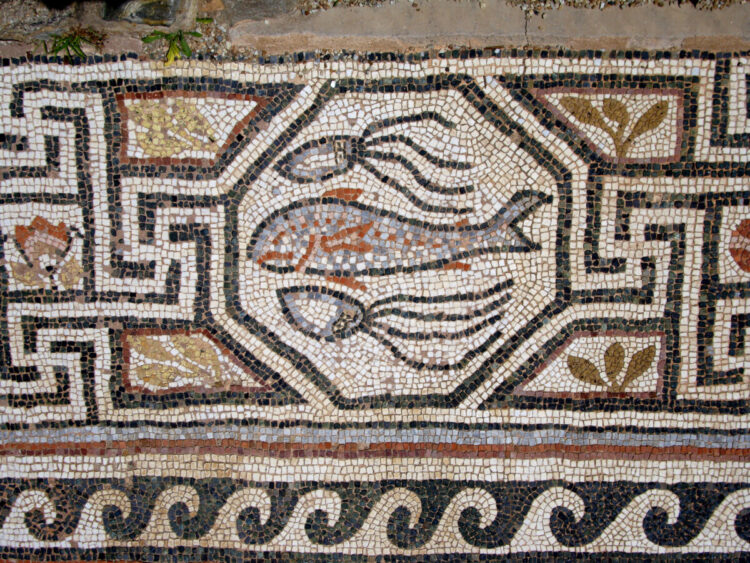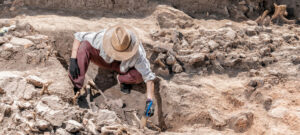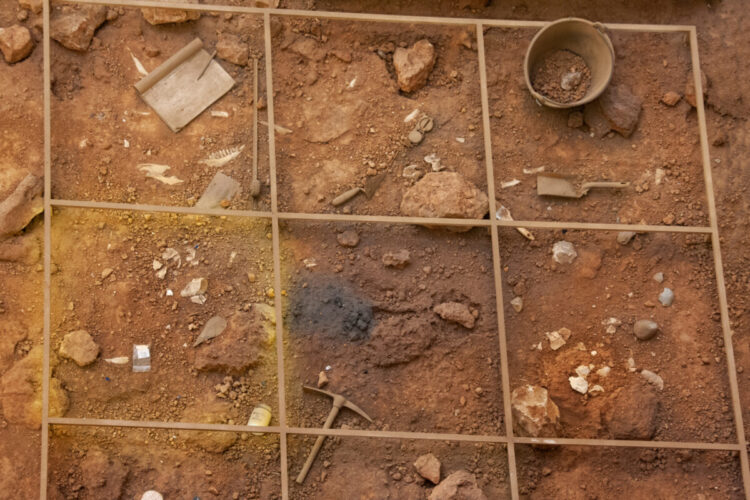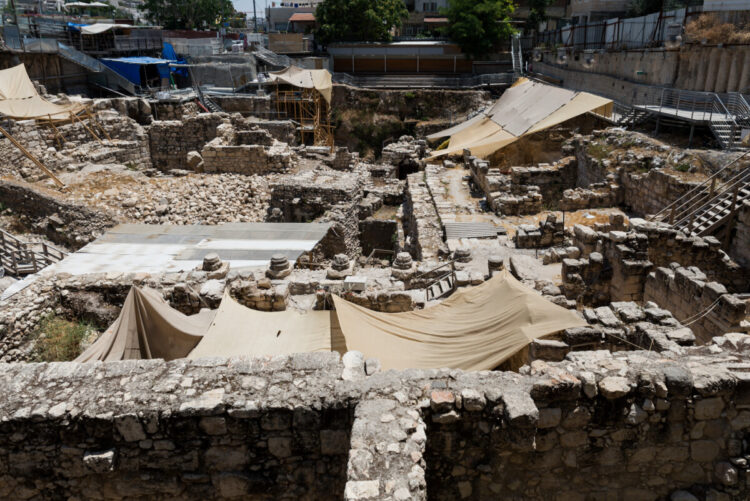We know you. You would rather watch the History Channel than Angry Housewives of New Jersey. Old copies of National Geographic are some of your best friends and occupy precious desk and countertop space in your home. You have seen Indiana Jones I and III (but not II) several times. You are not a tourist: you like to immerse yourself in the cultures you visit, to experience a destination from an insider’s point of view. You sometimes wish you had taken that college archeology course when you had the chance.

Sound familiar? If so, it’s time to think about exploring your next destination with a tour focused on either archeology or anthropology. Such cultural exploration tours provide an opportunity to gain real insights into people and places. Archeology is the study of humanity and its past by gleaning information from the artifacts the culture left behind, whether the trail consists of grand monuments and buildings or garbage and rubble. Archeologists use both manual and academic tools to uncover and develop information, everything from trowels and shovels to ancient books and maps. Archeology is an exciting voyage into the depths of human history, and you are invited along.
This article discusses tours and travel that revolve around archeological site visits. However, there also are opportunities to participate with archeologists on digs the world over. So-called ‘field work’ opportunities are usually available as a source of cheap labor for cash-strapped academics. A tour that visits archeological sites may be just the introduction to archeology that you need to decide whether actual fieldwork is something you will want to explore.
 There are several ways to indulge your fascination with archeology on a tour. Using a travel consultant to find the best possible values on air and ground packages, you can independently plan and book your travel to areas of the world in which you have an interest. Many archeological treasures are generally accessible to the public and available for travelers to explore on their own. The ruins of ancient Greece are a terrific example of sites where even the most casual observer can examine up-close the relics of a civilization more than 2000 years old. In some areas of Greece, the ground is actually littered with shards of pottery and other crafted items. Traveling independently means your time is your own and that you are unfettered from the restraints of other travelers, schedules, and agendas. It also means that you are ‘on your own’ with regard to finding the best sites and uncovering good academic information on each site you visit. In addition, in some areas, only authorized tours may enter archeological sites.
There are several ways to indulge your fascination with archeology on a tour. Using a travel consultant to find the best possible values on air and ground packages, you can independently plan and book your travel to areas of the world in which you have an interest. Many archeological treasures are generally accessible to the public and available for travelers to explore on their own. The ruins of ancient Greece are a terrific example of sites where even the most casual observer can examine up-close the relics of a civilization more than 2000 years old. In some areas of Greece, the ground is actually littered with shards of pottery and other crafted items. Traveling independently means your time is your own and that you are unfettered from the restraints of other travelers, schedules, and agendas. It also means that you are ‘on your own’ with regard to finding the best sites and uncovering good academic information on each site you visit. In addition, in some areas, only authorized tours may enter archeological sites.
You and your travel consultant may also opt to work with a tour operator providing escorted tours to areas of archeological interest. Host tour operators that provide archeological tours are varied in their size and the degree to which they specialize. Some very large tour operators have begun to develop archeological tours to satisfy the growing demand from their clients. Others are small, independent tour operators run by knowledgeable archeologists. Typically, such tour operators provide group accommodations and site visits and range from a generalized knowledge and specialization in archeology to tours that are dedicated to the field study of archeological sites. Those tour operators that are dedicated to archeological site visits will most often work with smaller groups of travelers and are usually led by scholars and experts in the field of archeology. Some tour operators offer specialized tours with small groups and very flexible itineraries. Be sure to make clear to your travel consultant your preferences and your budget to allow for accurate tour operator selection.
Your first two decisions in the planning process are where you want to go and what you want to study. Archeological tours are worldwide in scope, so you have a literal planet of destinations from which to choose. Popular destinations include the Mediterranean classical world of Turkey, Greece, and Italy. The Middle East and Northern Africa have many sites important to biblical archeology. Various areas of Europe are troves for Western and Celtic cultures, while India, China and the Far East are important destinations for those with a penchant for Asian history and culture. Many areas of North, Central, and South America still contain undiscovered locations for the diverse Native American cultures, from the familiar tribe of the United States and Canada to the Mayan, Aztec and Incan civilizations. With regard to the areas of study, you might want to focus on prehistory, classical, or more modern time periods.
A key consideration for your planning will be the composition and number of people in your party. Some tour companies keep the group sizes very small, as few as 8, but on occasion, groups swell to 25 or more. The larger group tours tend to be less expensive in general, but individuals have less access to group leaders and experts. The age range on a typical archeological tour is wide, from 30 – 80 years, but most participants tend to be physically active. The atmosphere is most often very informal and friendly. Some tour operators have limits on whether children can participate, so be sure to inquire if you have young ones that will accompany you on your travels.
Most tour operators have few prerequisites for travel, such as prior course instruction or study. However, your own enjoyment of the adventure will be all the greater for any preliminary research and study that you undertake. Ask your travel consultant to determine if the tour operator has a recommended reading list for you prior to travel. If not, spend some time acquainting yourself with the geography, culture, and history of the area you are to visit.

You will often have an opportunity while on your travels to purchase an antique or an artifact. In some rare instances, you might even find an artifact lying amidst the rubble. Use caution! In many countries, the distinction between an antique, antiquity, and a cultural artifact is not only close but vitally important. In some countries, antiques are the province of state-run shops. More often, however, many countries ban the export of cultural artifacts or antiquities without a proper permit, and some items may not be exported in any event. In addition, certain categories of antiques, such as ancient paintings, calligraphy, or firearms, may be forbidden. Protected animal products, ivory, or hides often are not permissible items for export. The laws and regulations governing the export of antiques are considerable in many countries, moving well beyond considerations of VAT (Value Added Taxes) into the realms of cultural antiquities and smuggling! Thus, one of the most crucial services provided by a good host tour operator is compliance with local laws regarding the purchase and export of antiques. Americans have been arrested in some countries for the unauthorized purchase of antiques or other important cultural artifacts. Always insist that the seller provide a receipt and, when appropriate, the official museum export certificate required by law if any. Unwary purchasers can find their goods confiscated without compensation and, in extreme cases, even arrested. Thus, communicate with your host guide before making any purchase and keep your receipts in order.
Archeological site visits are by their very nature a more active category of travel. Not all archeological sites are accessible to those with physical impairments or limitations. In addition, site visits often entail long periods of time walking or hiking in areas that are unpaved and even technical to negotiate. The climate in various areas of the world, whether heat, humidity, cold, altitude, or other exposure to the elements, can add to the physical stress a site visit might entail. If you have any concerns about the physical capacities of you or your companions, make them known to your travel consultant early in the planning process. Finally, ask a doctor schooled in travel medicine whether there are any special health considerations for your intended destination, such as malarial recommendations, inoculations, or suggested precautions against food and water-borne maladies.
Accommodations provided by an archeological tour operator vary not only from tour operator to operator but also from trip to trip. There are very high-end luxurious accommodations available as well as tents, research stations, and jungle lodges. Likewise, tour operators provide a varied number of means to transport travelers to, from, and between sites, from large motor coach buses to 4-wheel drive vehicles. Knowing in advance what type of lodging and transportation the tour operator provides will help you to better prepare mentally for your travels.
Your travel consultant will provide you with information regarding the necessary travel documentation for your destination of choice. In general, international travel requires a passport and often a visa. Your passport should be valid for at least six months after your planned date of return. Visas can often be purchased at your point of entry, but sound practice dictates that you obtain any necessary travel documentation well in advance of travel. Travel insurance, which can typically be purchased through your travel consultant, is a good idea to protect against baggage loss, trip cancellation, interruption, or unexpected health emergencies occurring during your journey.
Archeology tours. We know you. You’ll dig it.


